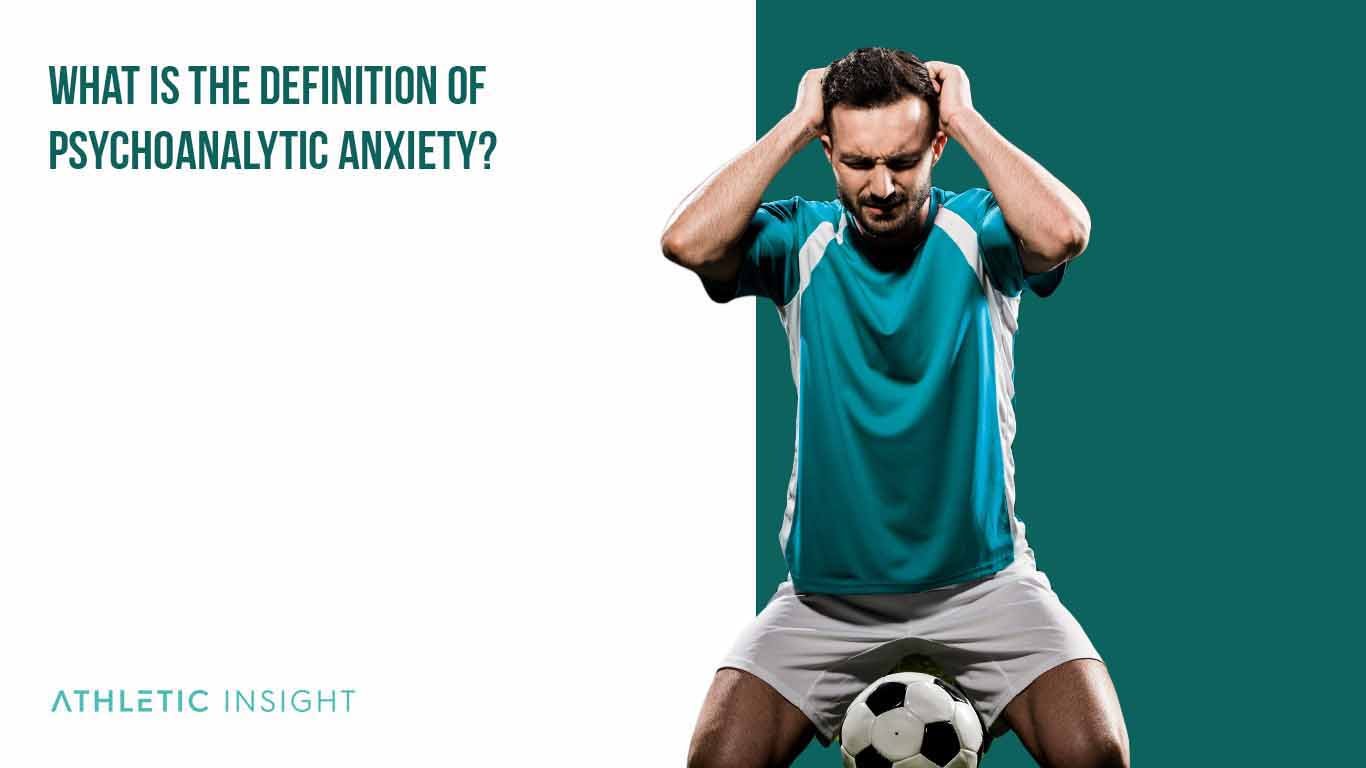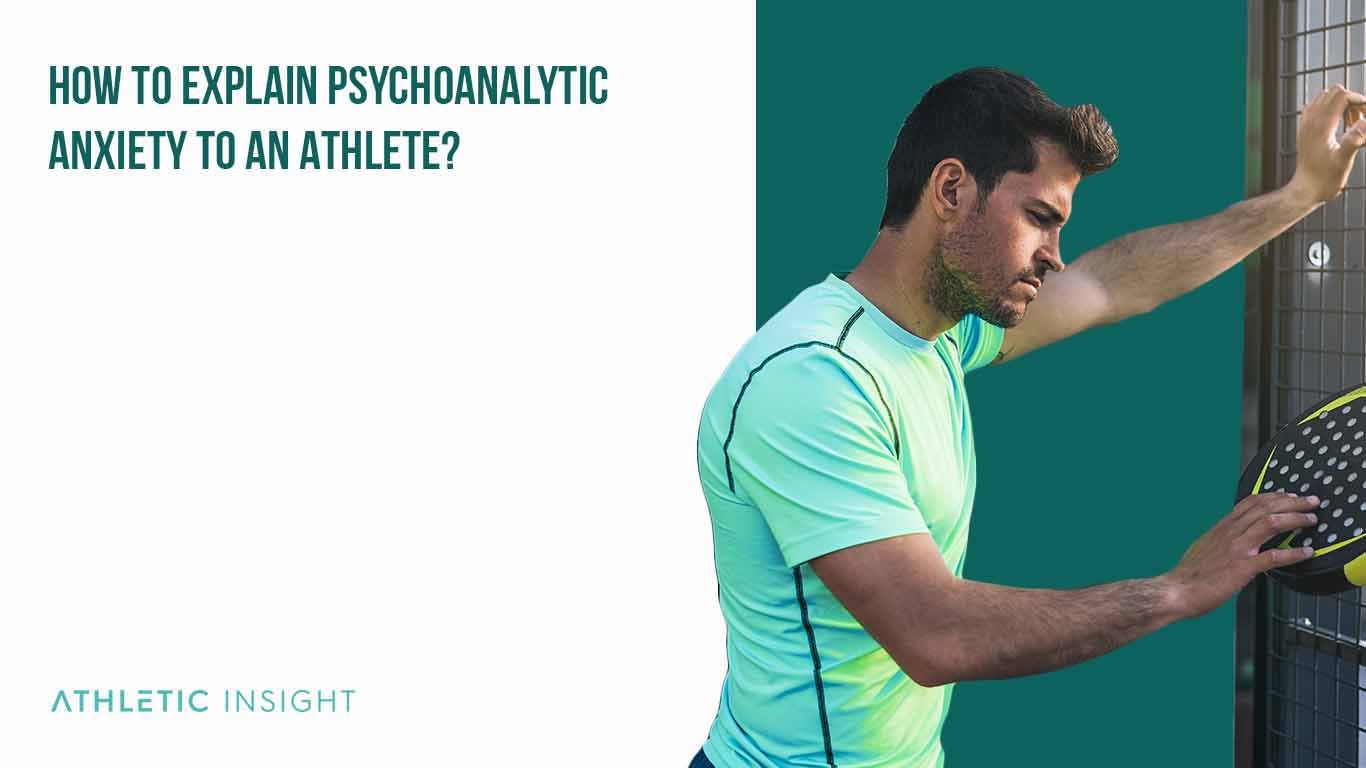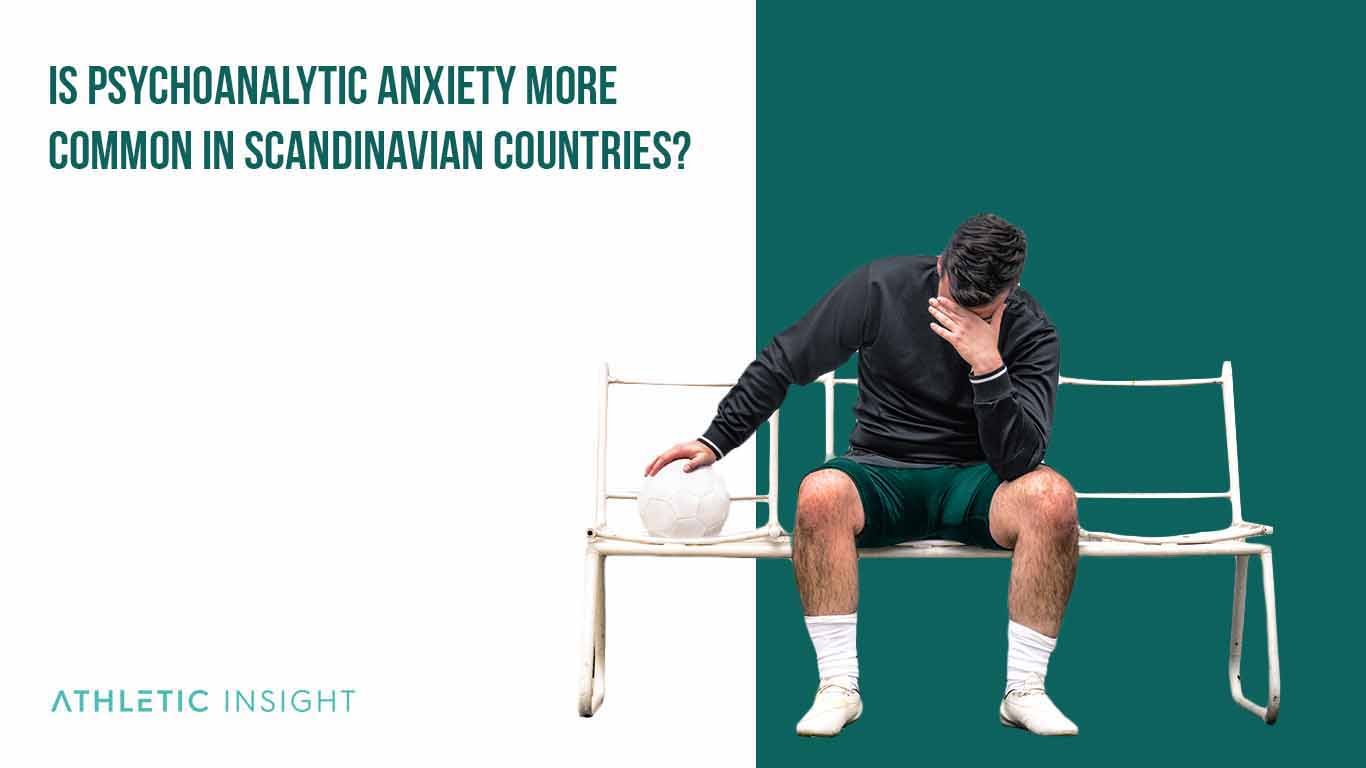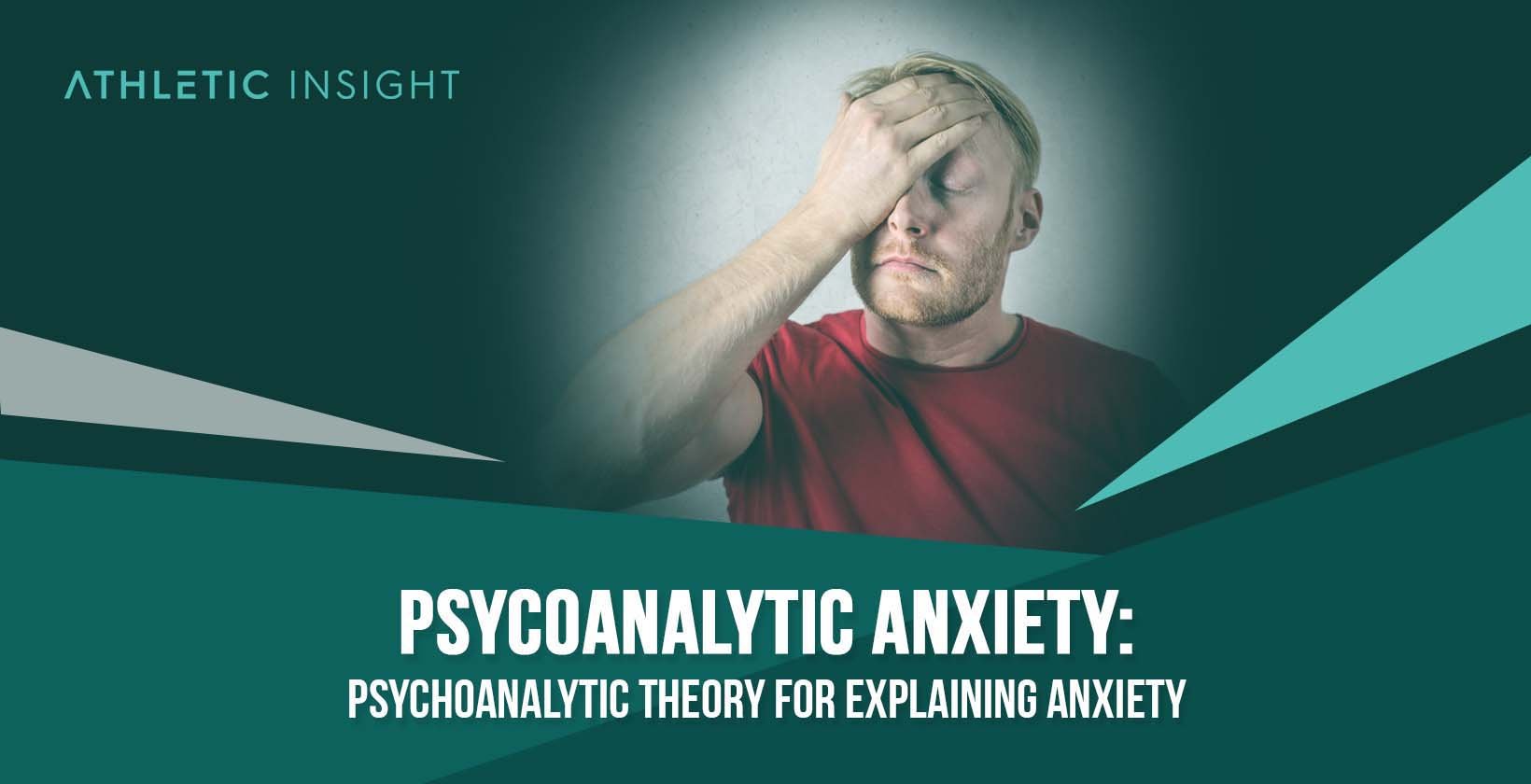Psychoanalytic anxiety is a psychodynamic theory that sees anxiety as a conflict or struggle between a person’s id and ego. The id is the most primal and instinctive part of the mind, while the ego negotiates between reality and our unconscious mind and makes up our self-identity.
Psychoanalytic anxiety was discovered by the infamous neurologist Sigmund Freud in the 1800s. Freud was the first to use the phrase psychoanalysis, and his use of hypnosis with patients brought to light the idea of repressed experiences hidden in the unconscious mind.
Freud made several important discoveries and developed multiple theories about anxiety as a signal and as a warning to the ego or a defense mechanism. His hypothesis of anxiety evolved as he began to analyze and document what he called the structure of personality.
In the structure of personality are the id and the ego, and when they conflict anxiety is the result.
What is the Definition of Psychoanalytic Anxiety?
Psychoanalytic anxiety is a form of anxiety explained by the psychodynamic theory. The theory states that psychoanalytic anxiety is caused by friction between two structures of our personality or mind, the id, and the ego.

The id is the section of the mind or personality dedicated to unconscious wants and impulses formed by a person’s genetic background. The id is focused on self-preservation and longevity and is the part of the mind where survival instinct and self-defense live.
The ego is the section of the mind or personality dedicated to conscious and preconscious memories whose primary goal is to perceive, understand, and act, as it’s the part of the mind that operates in conscious awareness. When the ego and id are at odds, the mind represses the conflict.
When the conflict is repressed instead of dealt with or fixed, anxiety and defense mechanisms can begin.
How to explain Psychoanalytic Anxiety to an Athlete?
Psychoanalytic anxiety can be tough on anyone, especially on someone who relies on their physical and mental health for their job like an athlete. If an athlete is struggling with anxiety, explaining psychoanalytic anxiety may help them understand where the problem is coming from.

To explain psychoanalytic anxiety to an athlete, you should give them a full and direct definition of what anxiety is, the symptoms, and the way it can affect mental and physical health. They should also know the definition of the id, ego, and superego, to better understand the theory.
Finally, explain the psychodynamic theory and how the clash between the id and ego can cause anxiety and eventually neurosis or psychosis if it or the defense mechanisms used to avoid it get ignored. It’s crucial to provide mental health support throughout your explanation.
Once an athlete understands the theory of psychoanalytic anxiety, they can begin to seek help.
Can Psychoanalytic Anxiety affect Athlete performance?
Psychoanalytic anxiety can affect an athlete’s performance. Performance anxiety, also called stage fright, is an example of how psychoanalytic anxiety can throw an athlete off their game and even increase the risk of defeat, injury, or uncommon mistakes and accidents.
Things like child abuse or distressing and traumatic interactions with a parent, coach, or another authority figure can, when repressed, cause psychoanalytic performance anxiety. Issues with self-worth, self-esteem, and violent conflicts as a young person can also cause anxiety.
Athletes can avoid or deal with performance anxiety by undergoing continual psychoanalysis with an expert. Giving the athlete a space to safely explore any traumas or issues they’re dealing with can help them deal with unconscious thoughts and experiences which cause anxiety.
Many obstructions can exist in the unconscious mind related to winning, defeat, and sports performance, and they differ for every athlete.
Is Psychoanalytic Anxiety more common in Scandinavian Countries?
Anxiety is most prevalent in Portugal, Brazil, Iran, and New Zealand, where between .6% and .8% of the population was dealing with anxiety or anxiety disorders as of 2019. In the Scandinavian countries, Norway, Sweden, Denmark, Finland, and Iceland, people in Norway deal with the most anxiety, with .7% of the population dealing with it in 2019.

In Norway, loneliness, unemployment, and isolation can cause anxiety and other mental health problems to come to the surface, even if they’ve been dormant for a long time. Living in an isolated area can decrease the availability of social interaction, which is crucial for a healthy mind.
In Brazil, mental health is seen as a taboo subject and mental health services are hard to find. Low socioeconomic status is also a factor, and many in Brazil struggle with extreme poverty and small chances to increase their status from generation to generation.
How Can Exercise Reduce Psychoanalytic Anxiety Symptoms?
Exercise can mitigate psychoanalytic anxiety symptoms by facilitating emotional catharsis and physical release of tension, aligning with psychoanalytic emphasis on the mind-body connection. Engaging in regular physical activity helps in the subconscious processing of repressed emotions and conflicts, which are central to psychoanalytic theories of anxiety.
By increasing endorphin levels, exercise promotes a natural state of well-being, counteracting feelings of unease or distress that arise from unresolved inner conflicts. The rhythmic and repetitive nature of certain exercises, such as running or swimming, can also offer a meditative effect, providing mental clarity and facilitating a deeper exploration and resolution of underlying psychoanalytic issues. This can lead to a reduction in symptoms of anxiety as individuals work through and resolve their unconscious conflicts.
What Dietary Changes Impact Psychoanalytic Perspectives on Anxiety?
From a psychoanalytic perspective, dietary changes that impact mood regulation and emotional well-being can indirectly influence anxiety symptoms. Consuming a diet high in nutrients that support brain health and neurotransmitter function—such as omega-3 fatty acids, antioxidants, vitamins B and D, and magnesium—can enhance emotional regulation and resilience to stress.
These nutrients support the physiological underpinnings of emotional and psychological health, potentially aiding in the management of unconscious conflicts and emotional disturbances that contribute to anxiety, according to psychoanalytic theory. Reducing intake of stimulants like caffeine and sugar can also mitigate the physical symptoms of anxiety, such as restlessness and palpitations, thereby reducing the exacerbation of psychoanalytic anxiety symptoms through physiological stress responses.
Which Supplements Are Effective According to Psychoanalytic Views on Anxiety?
While psychoanalytic theory primarily focuses on exploring and resolving unconscious conflicts through therapy, certain supplements can support this process by stabilizing mood and improving overall brain function.
- Omega-3: Supplements such as omega-3 fatty acids, known to support brain health and mood regulation, may indirectly facilitate the psychoanalytic therapy process by improving the client’s emotional stability.
- Magnesium: Magnesium, often associated with relaxation and stress reduction, can help alleviate physical symptoms of anxiety, potentially making it easier for individuals to engage in psychoanalytic exploration.
- Vitamin D and B Vitamins: Vitamin D supplements and B vitamins have been linked to mood regulation and could support the psychoanalytic treatment of anxiety by contributing to a more balanced emotional state.
It’s important to note that supplements should complement, not replace, psychoanalytic therapy and should be used under the guidance of a healthcare professional.



